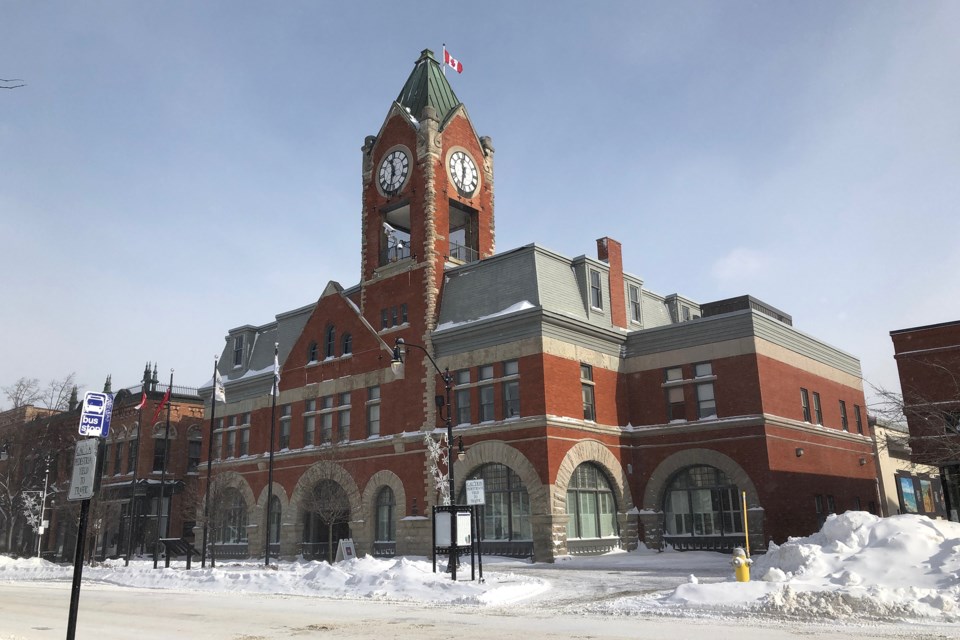Collingwood’s treasurer has a clear message for council and the public on the $15 million the town will receive through two asset sales this year: “Once these funds are gone, they are gone.”
Marjory Leonard is submitting a report to the Strategic Initiatives Committee (SIC) for their meeting today at 3 p.m. on the asset sale proceeds and some of the options she has compiled from Collingwood’s financials.
The money has come from the sale of Collus to Epcor, and will come from the sale of the Collingwood Regional Airport, which has not closed yet.
“This is the last time the town will have this amount of funding available and, in terms of fiscal responsibility and sustainability, it should not be considered a windfall,” states Leonard in her report.
The department heads met for a staff meeting Jan. 22 to contribute to the list of ideas Leonard is submitting to the SIC. Staff is recommending council give the go-ahead to start public consultation on the use of the funds.
The ideas laid out in the report include debt management, project funding, an internal loan fund, reserves, and legacy funds.
According to Leonard’s report, the town’s tax-supported debt totals $24 million, but that cannot be repaid in the short-term without incurring penalties. There is some tax-supported internal debt and committed debt that can be repaid, including $551K for the waterfront trail, $290K for the OPP renovations, $507K for 507 Tenth line, $170K for the Eddie Bush Arena, $500K for the curling club, and $700K for the shipyards walkway. An unfunded amount on the books for the high street widening totals $489,641.
In all, the debt that can be paid in a lump sum totals $3.2 million.
Under the project funding heading, Leonard lists four projects that could be funded by the proceeds of the asset sale including: $10 million for the Collingwood terminals, extending electrical, water and wastewater services to the end of the pier (by the terminals), a green space in the downtown core or waterfront, and $2.3 million to renovate and expand the public works building and yard to house current and future staff.
Another option included in Leonard’s report is to establish an internal loan fund. Essentially, the town would use the $15 million to create an internal fund to reduce or eliminate the need for future debt financing.
“The repayment amount would include an element of interest based on the foregone investment income the town could have earned,” states Leonard’s report. “Essentially, we would become our own banker and create a perpetual fund for future capital projects.”
The interest to make up for lost investment would be lower than the interest paid on a loan.
Continuing with the idea of saving for a rainy day, Leonard also included ideas for reserve fund contributions.
Those reserve funds could include a hospital reserve fund to assist with construction of a new hospital in the next eight to 10 years; a contribution to the working capital reserve fund, which acts as a contingency fund for temporary shortfalls, unforeseen expenses, and unpredictable one-time expenses; the waterfront master plan reserve fund, which is used to implement the various projects included in the master plan; and the lifecycle replacement reserve fund, which is used to fund the asset management plan by providing the funds needed to replace or rehabilitate the town’s existing capital infrastructure. According to Leonard’s report, there is currently a $9 million deficit in the lifecycle replacement reserve fund based on what staff have calculated should be in the account versus what is in there now.
Finally, Leonard’s report included ideas for two legacy funds.
The money could be used as endowment seed funding for a community foundation. A community foundation could be established to support local initiatives with grants, investments, expertise and leadership.
A portion of the funds could also be used to start a Collingwood Legacy Fund, where the investment income from the principal could be used on an annual basis or left to accumulate to complete projects or fill needs in the community.
The SIC will meet today at 3 p.m. in the town hall council chambers to discuss Leonard’s report and give staff further direction on beginning the public engagement process.


